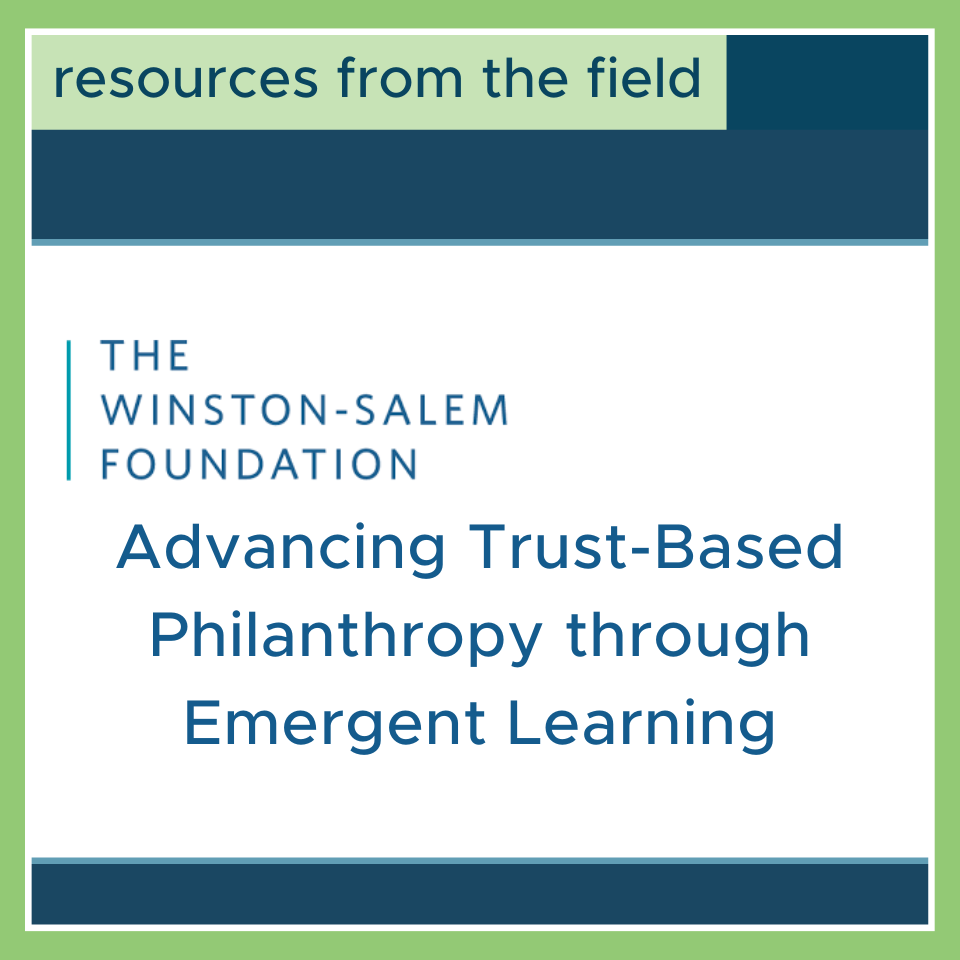
Advancing Trust-Based Philanthropy through Emergent Learning
This report charts the Winston-Salem Foundation's journey with both emergent learning and trust-based, where developing trusting relationships with grantees through dialogue facilitated mutual learning.
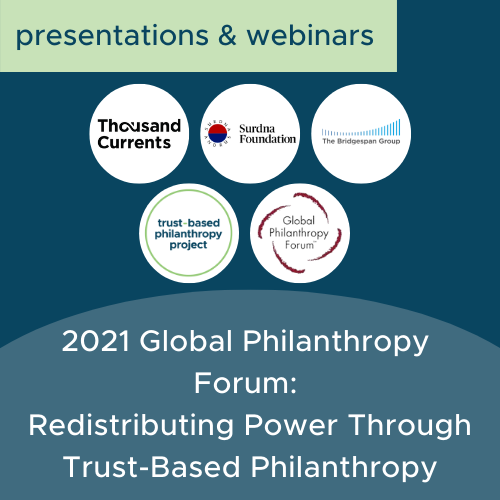
Redistributing Power Through Trust-Based Philanthropy
In this breakout session of the 2021 Global Philanthropy Forum, two trust-based funders describe the organizational structures and mindsets, rooted in trust, required to alleviate the power dynamic between funders and nonprofits.

Making the Case for Trust-Based Philanthropy: Part 1 & 2
This series addresses common misperceptions of trust-based philanthropy and offers examples and concrete first steps from other grantmakers in the field who have brought these ideas and approaches into their organizations.
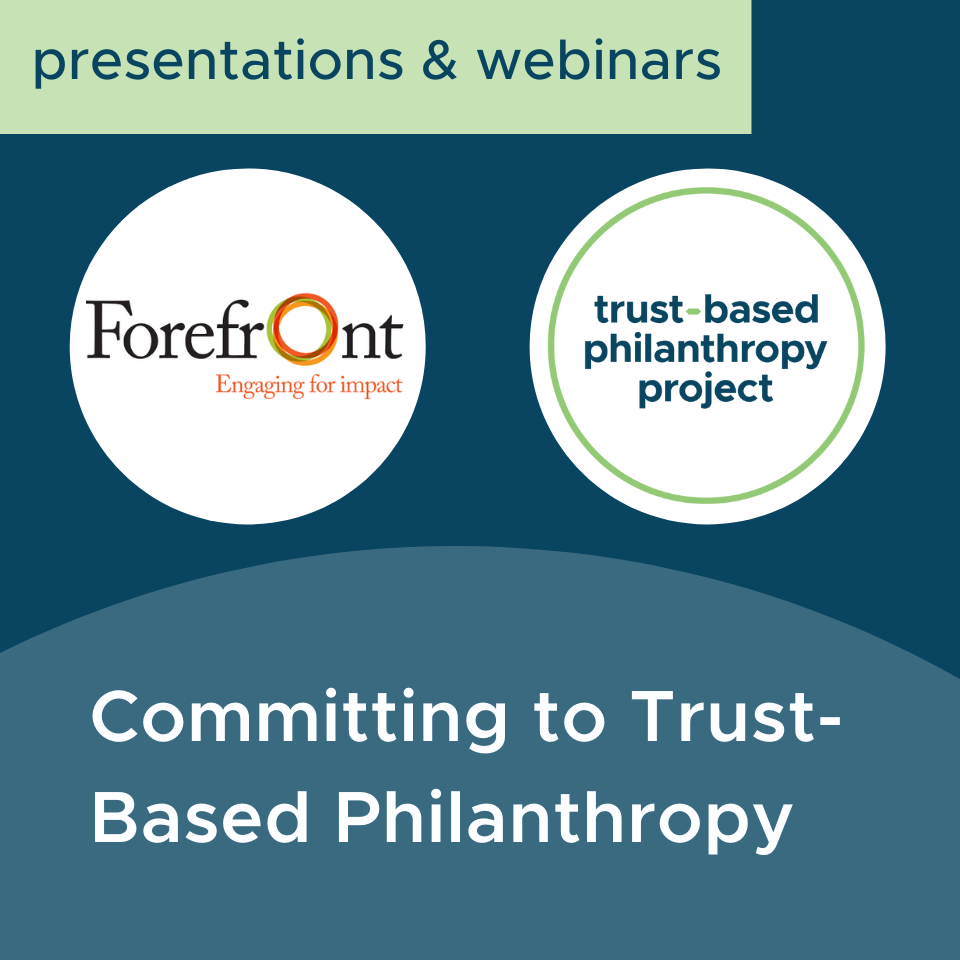
Committing to Trust-Based Philanthropy
Presented in partnership with Forefront Illinois, this webinar features a conversation with three foundation leaders on how trust-based philanthropy shapes extends beyond grantmaking practices into organizational values, culture, and leadership.
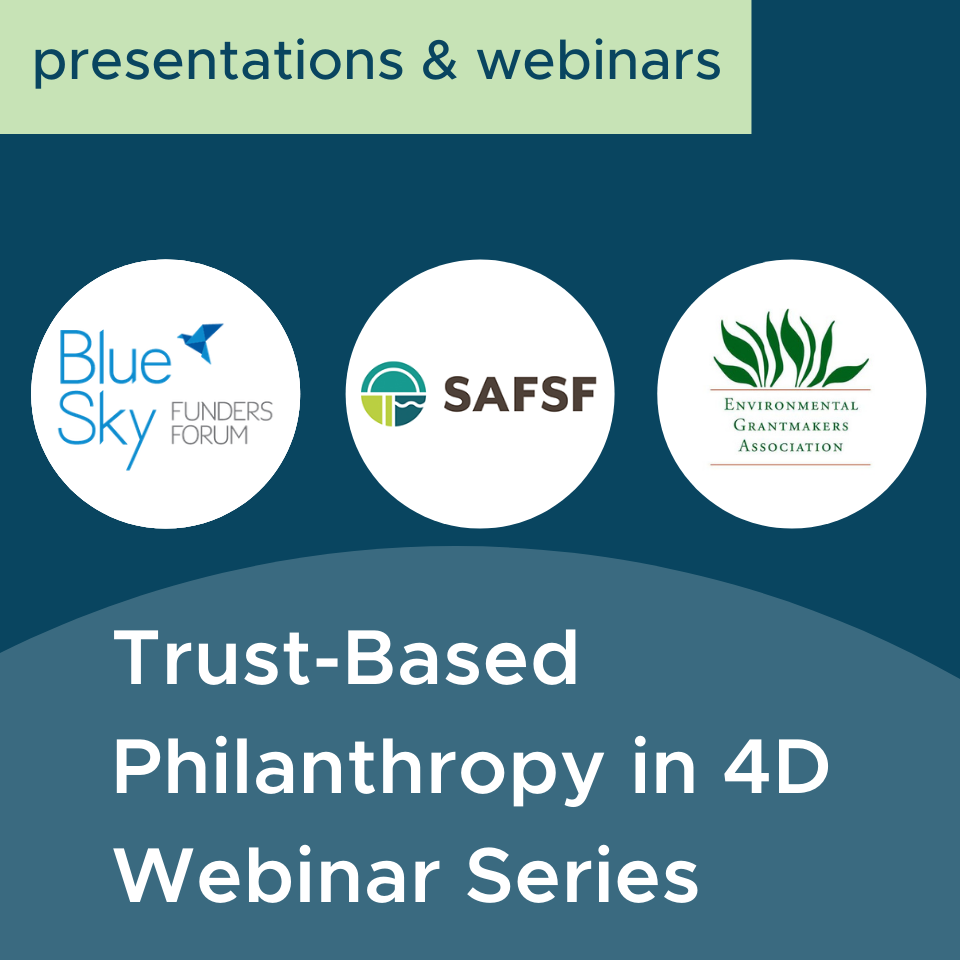
Series: Trust-Based Philanthropy in 4D
This four-part series invites funders to consider a multi-dimensional approach to the trust-based journey, which trust-based values shape grantmaking practices, culture, Structure, and leadership.
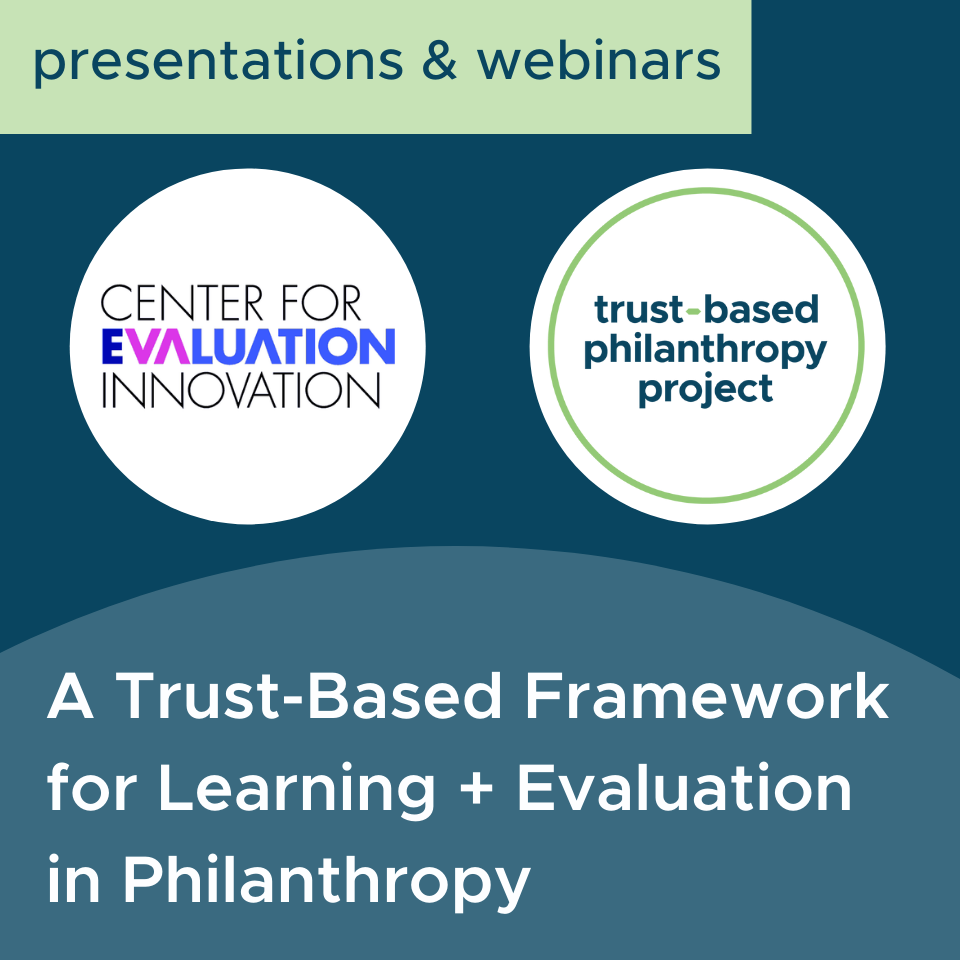
A Trust-Based Framework for Learning and Evaluation in Philanthropy
This webinar addresses the most frequently asked question from funders who are curious about trust-based philanthropy: “What does it look like to measure impact in trust-based philanthropy?”

IVAR Report: The Why and How of Unrestricted Funding
Research from IVAR demonstrates that no matter your organization’s perceived limitations or hesitations—whether about compliance, efficiency, impact or risk—we can all go further in offering the resource nonprofits need most: unrestricted funding.
Grantmaking with a Racial Justice Lens
The Philanthropic Initiative for Racial Equity created this guide to help foundation leaders understand what it means to move from racial equity to racial justice funding strategies.
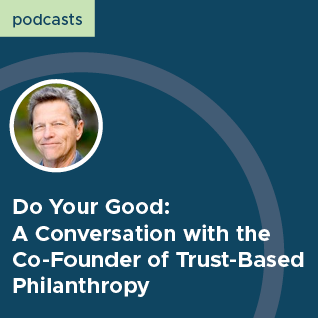
A Conversation with the Co-Founder of Trust-Based Philanthropy
On the Do Your Good podcast, John Esterle, Co-Executive Director of The Whitman Institute, discusses the evolution of trust-based philanthropy and offers advice on building ecosystems of trust across the sector.
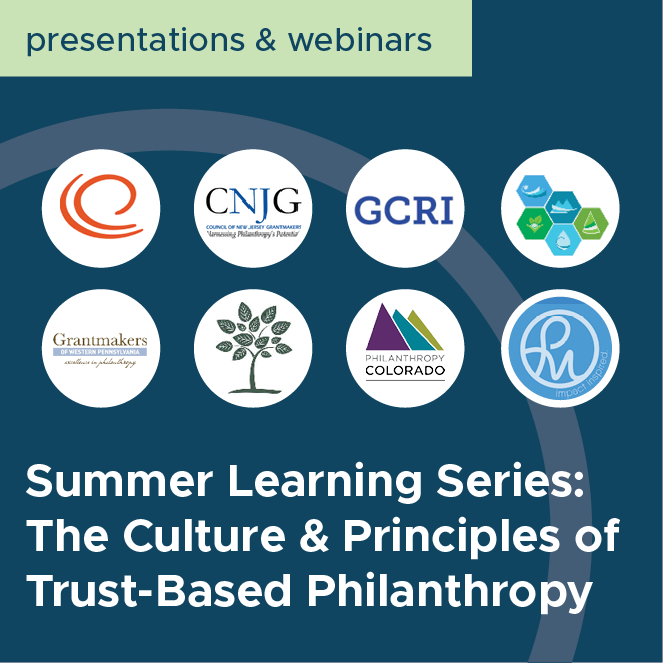
Trust-Based Philanthropy Summer Learning Webinar Series
This three-part series examines the process of building trust and mutual accountability with grantee partners and invites funders to reflect on the internal work necessary to center equity and power-awareness.
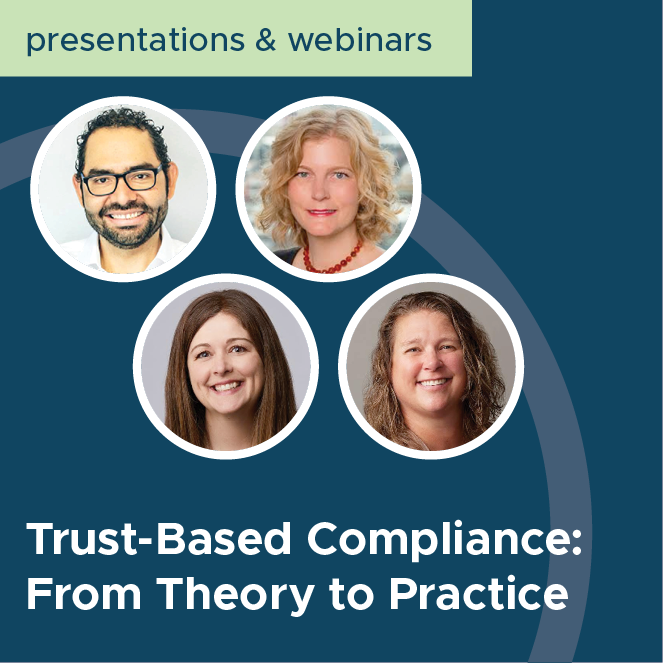
Trust-Based Compliance: From Theory to Practice
A CFO, an attorney, a tax expert, and an auditor share how they have implemented legal and financial practices that are trust-forward and fully compliant.
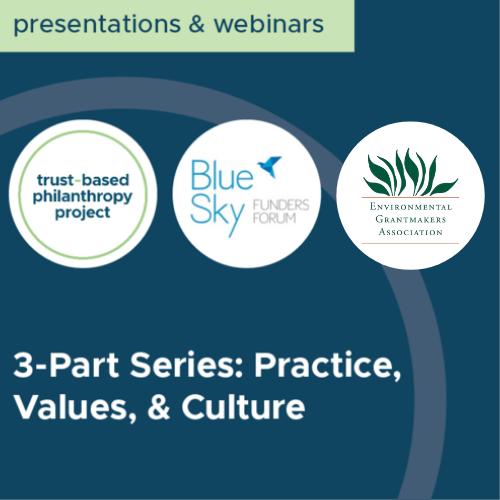
3-Part Series: Practice, Values, & Culture
This webinar series explores the practices, values, and culture of what it means to be a trust-based funder.
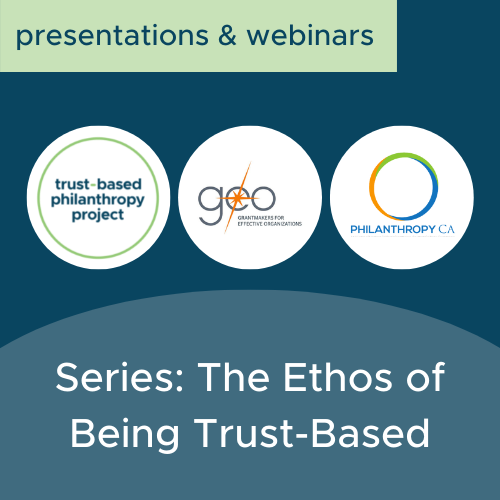
Series: The Ethos of Being Trust-Based
This series is dedicated to exploring the fundamental values and dispositions central to a trust-based approach, spanning personal, interpersonal, organizational, and systemic levels of self-examination and skill-building.
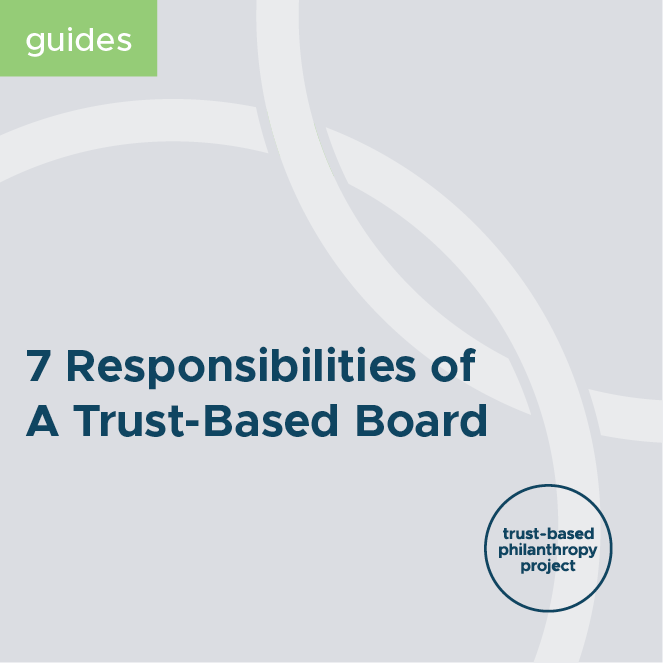
7 Responsibilities of A Trust-Based Board
This resource offers seven considerations for boards who want to advance trust-based philanthropic practice.
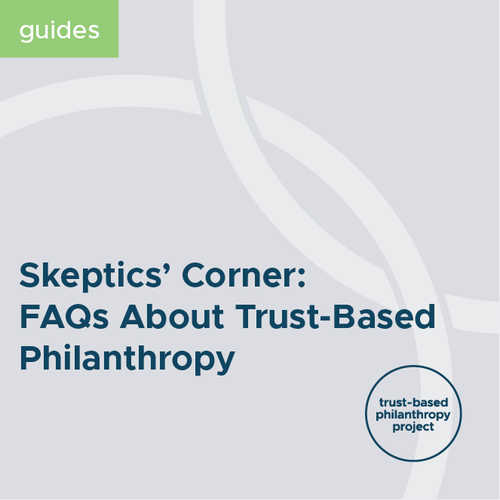
Skeptic’s Corner: FAQ’s About Trust-Based Philanthropy
This guide outlines the top ten most frequently asked questions about how foundations can adopt a trust-based approach, and a collection of answers based on contributions from many trust-based practitioners.
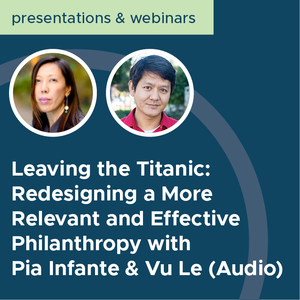
Leaving the Titanic: Redesigning a More Relevant, Effective Philanthropy
In this breakfast plenary from the 2020 Catalist Conference, nonprofit leader and writer Vu Le and Trust-Based Philanthropy Project steering committee member Pia Infante reimagine philanthropy’s role in this sociopolitical climate.
How To Show Up in a Trust-Based Way
This 2-pager overview offers six considerations for anyone—regardless of role or position—who wants to proactively build relationships of mutual trust.
Relationships Matter: Program Officers, Grantees, and the Keys to Success
Research from the Center for Effective Philanthropy (CEP) sheds light on what constitutes a strong funder–grantee relationship, what nonprofits say it takes for funders to foster such relationships, and the crucial role that program officers play in the equation.
